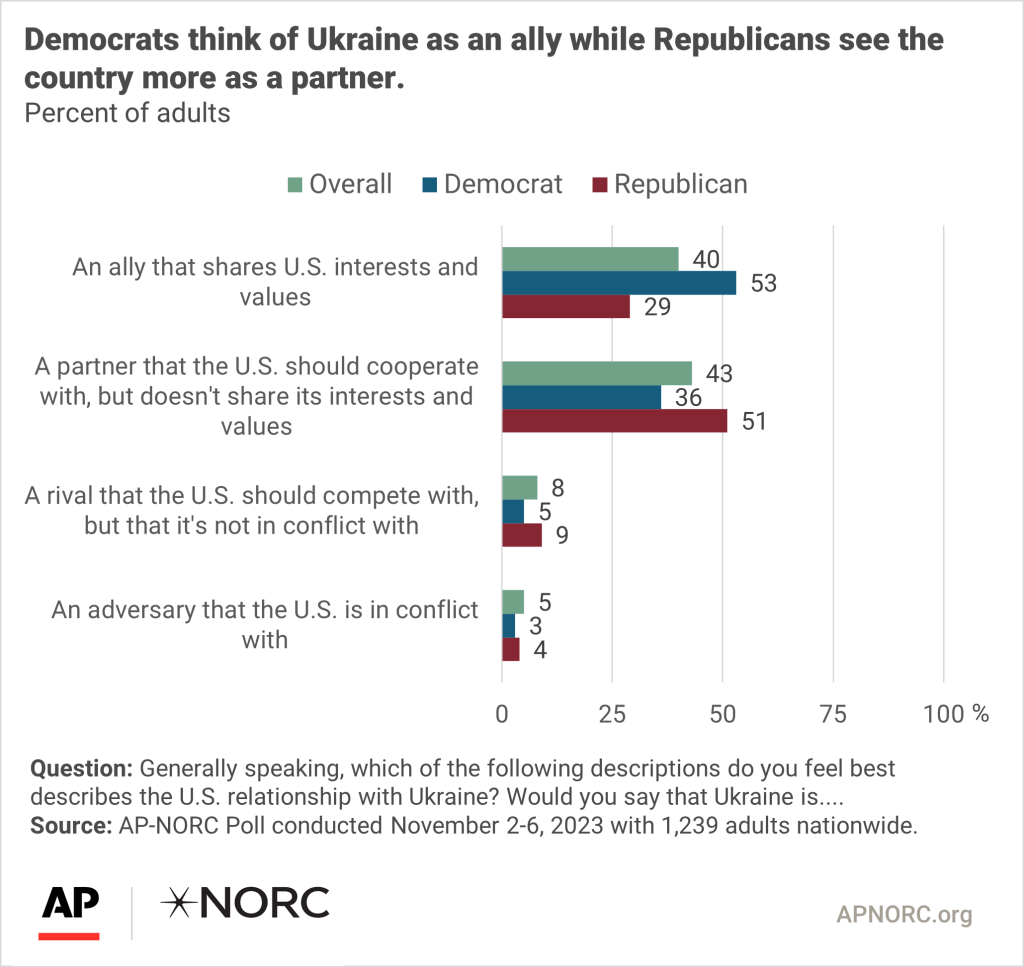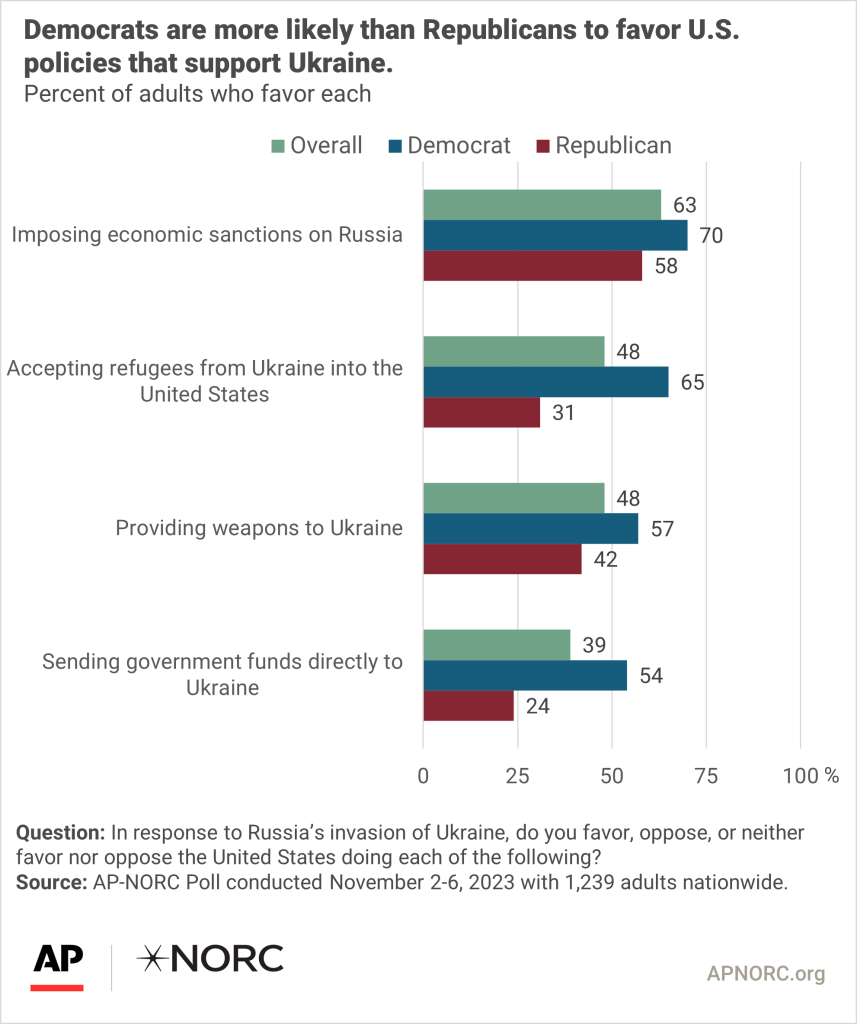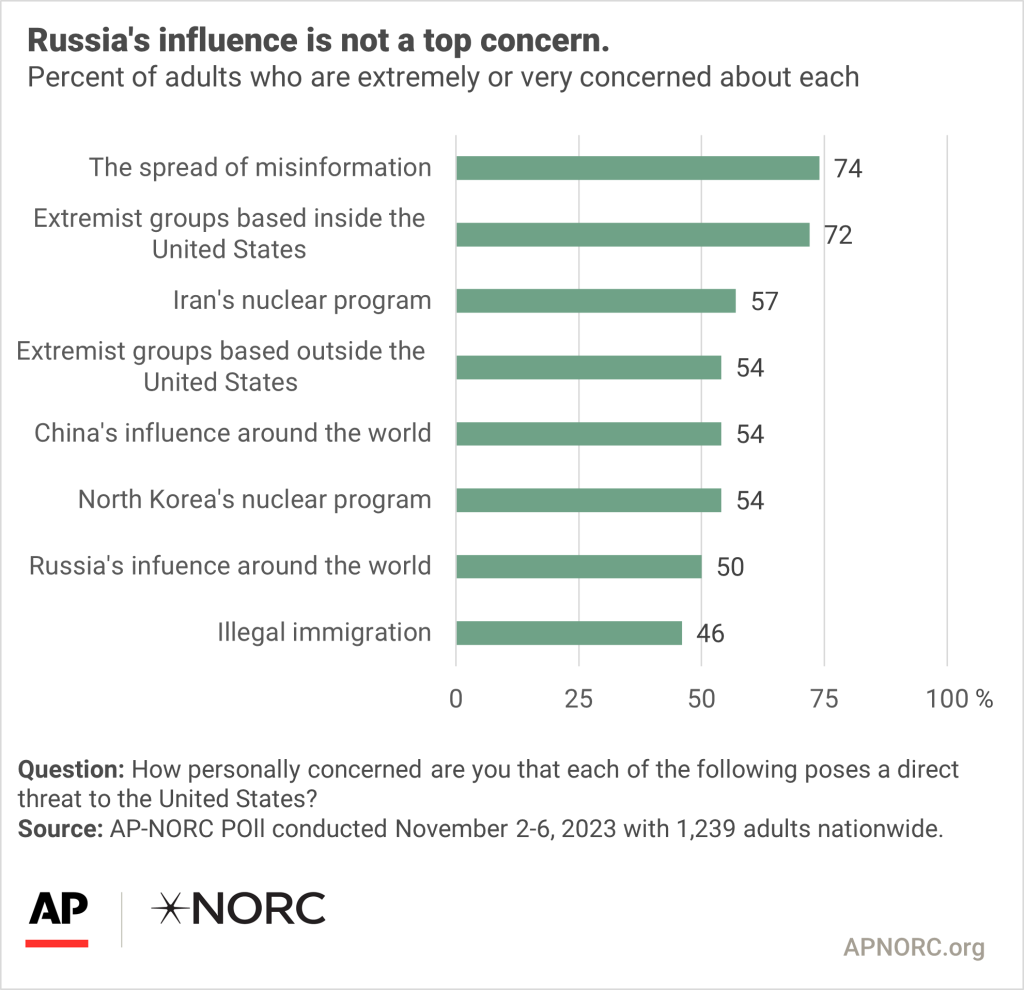
November 22, 2023
Fifty percent of the public is extremely or very concerned about the threat to the United States from Russia’s influence around the world. Four in 10 adults consider Ukraine to be an ally that shares the interests and values of the United States, and about the same number regard Ukraine as a partner that should be cooperated with but does not share the same values as Americans.
Most adults support economic sanctions on Russia in response to its invasion of Ukraine. There is less support for other measures in response to the war, such as accepting refugees, sending arms, or directly funding Ukraine.
Forty percent of adults view Ukraine as an ally that shares values with the United States, and 43% say it is a partner that does not share U.S. values. Democrats are more likely to think of Ukraine as an ally, while Republicans tend to regard Ukraine as a partner. Few adults consider Ukraine as either a rival or an enemy.

In response to the invasion of Ukraine, most adults, including 70% of Democrats and 58% of Republicans, continue to support imposing economic sanctions on Russia, however enthusiasm for other measures is lower. Most Democrats favor accepting refugees from Ukraine, providing weapons to Ukraine, and directly funding Ukraine, but less than half of Republicans support such actions by the United States.

As Congress debates whether to send more aid to Ukraine, 45% of the public say the U.S. government is spending too much on Ukraine and only 14% say it is spending too little. Thirty-eight percent say the United States is spending about the right amount. Nearly half of Democrats think Ukraine receives about the right amount of support; 59% of Republicans say the United States is spending too much aiding Ukraine.
Half of the public is concerned about Russia’s influence, but there is greater concern about other possible threats to the United States. The concern about Russia is one of the few topics where Republicans and Democrats agree. About half of both Democrats and Republicans are extremely or very concerned about Russia’s influence.

Forty-five percent of the public say the United States should take a less active role in solving the world’s problems, and 36% think the country’s current level of involvement in the world’s affairs is about right. Only 18% say the United States should become more active. Among Republicans, 54% say the country should take a less active role in world affairs, but 48% of Democrats think the United States is paying the correct amount of attention to the world’s problems.
Overall, 38% of the public approves of Joe Biden’s overall job performance. Asked specifically about how the president is handling the U.S. relationship with Russia, 44% approve and 53% disapprove. Similarly, 40% approve of how Biden is handling relations with China, and 58% disapprove. The survey was completed before Biden met with President Xi Jinping of China in California. As usual, the president is viewed through a partisan filter. While 71% of Democrats approve of how he is dealing with Russia, only 15% of Republicans agree. Sixty-six percent of Democrats have a positive opinion of how he is handling China, and only 11% of Republicans agree.
The nationwide poll was conducted November 2-6, 2023 using the AmeriSpeak® Panel, the probability-based panel of NORC at the University of Chicago. Online and telephone interviews using landlines and cell phones were conducted with 1,239 adults. The margin of sampling error is +/- 3.9 percentage points.
- Suggested Citation: AP-NORC Center for Public Affairs Research. (November 2023). “Most support economic sanctions against Russia in response to the invasion of Ukraine” https://apnorc.org/projects/most-support-economic-sanctions-against-russia-in-response-to-the-invasion-of-ukraine/







